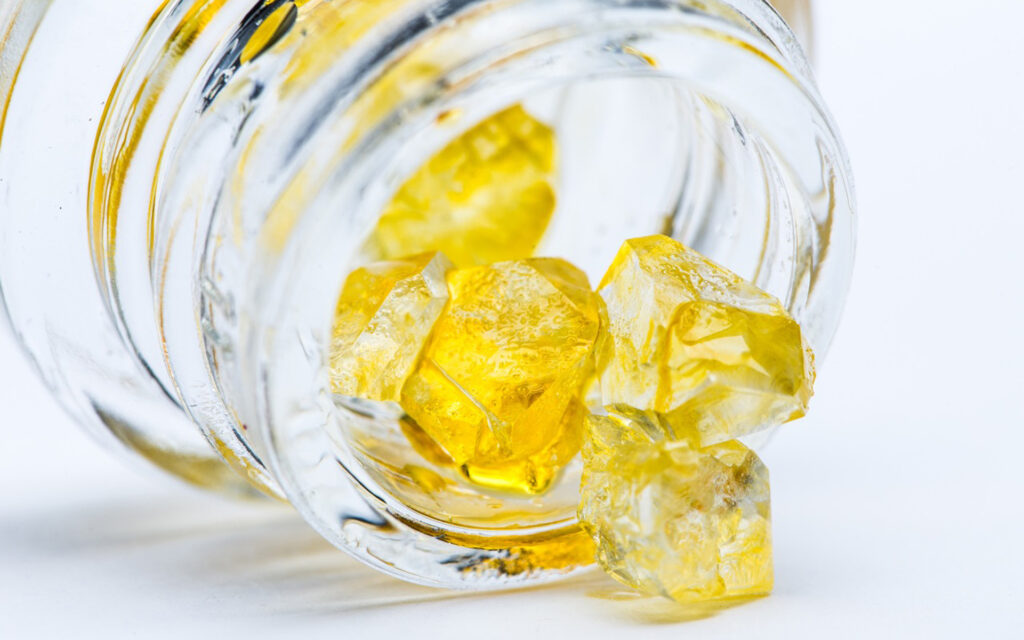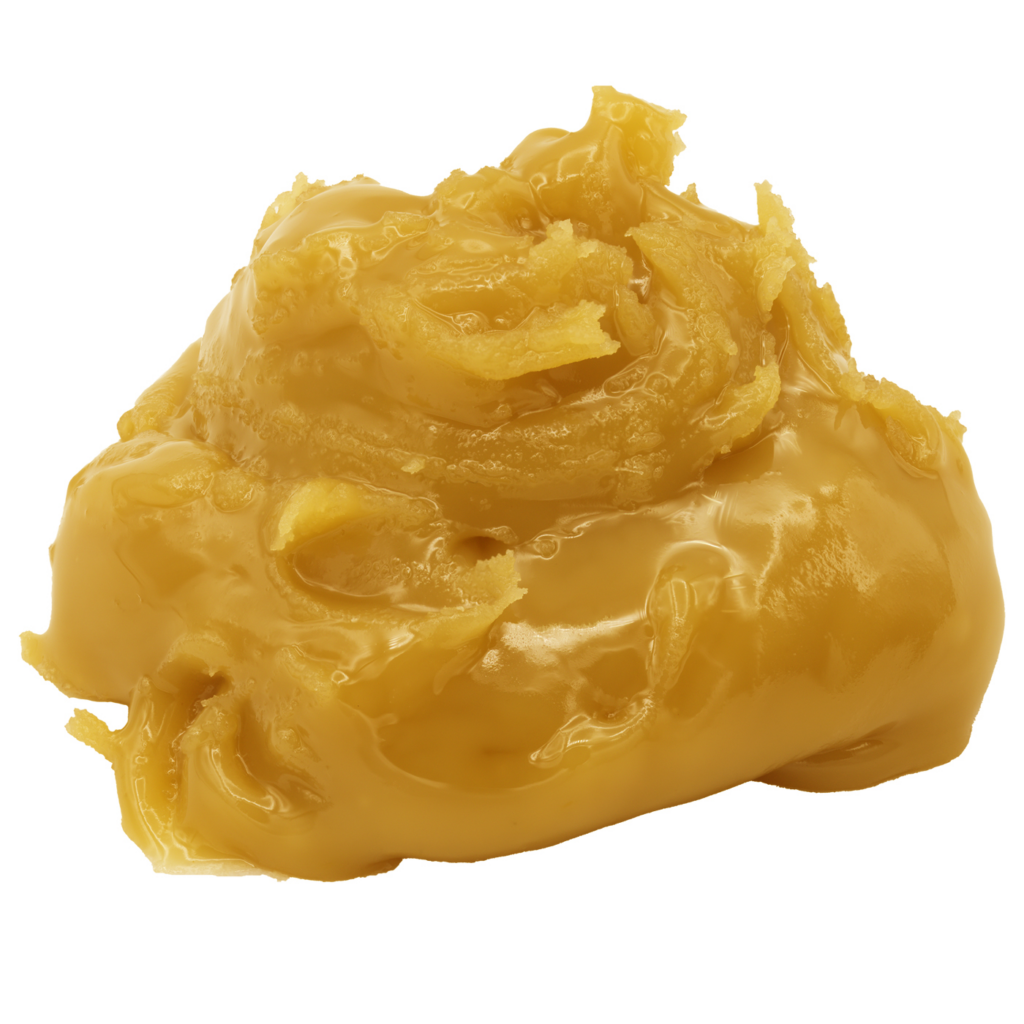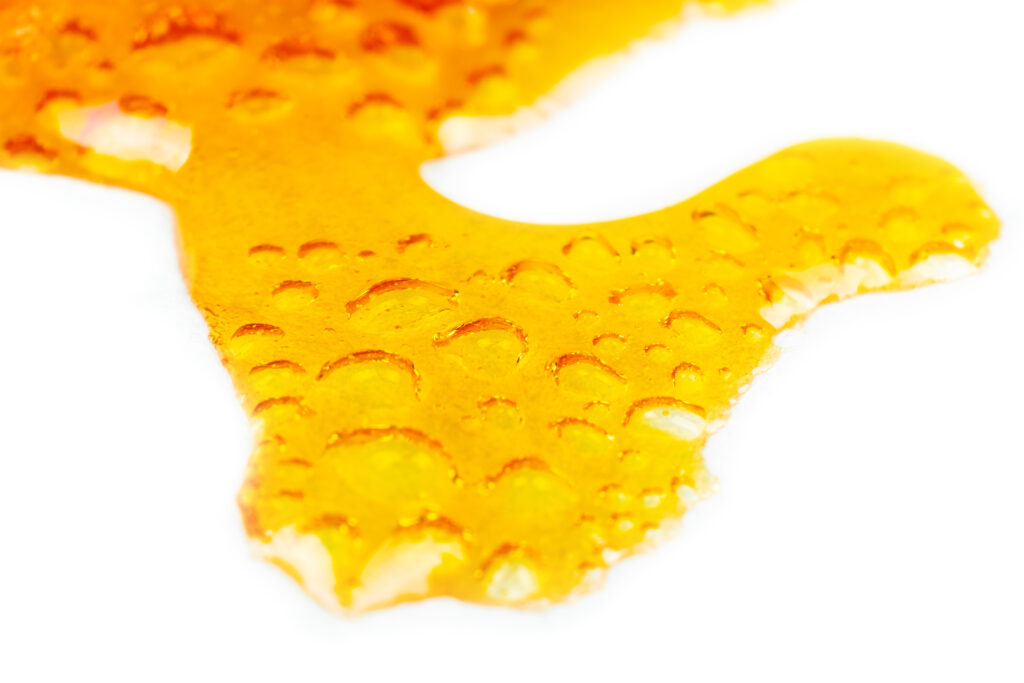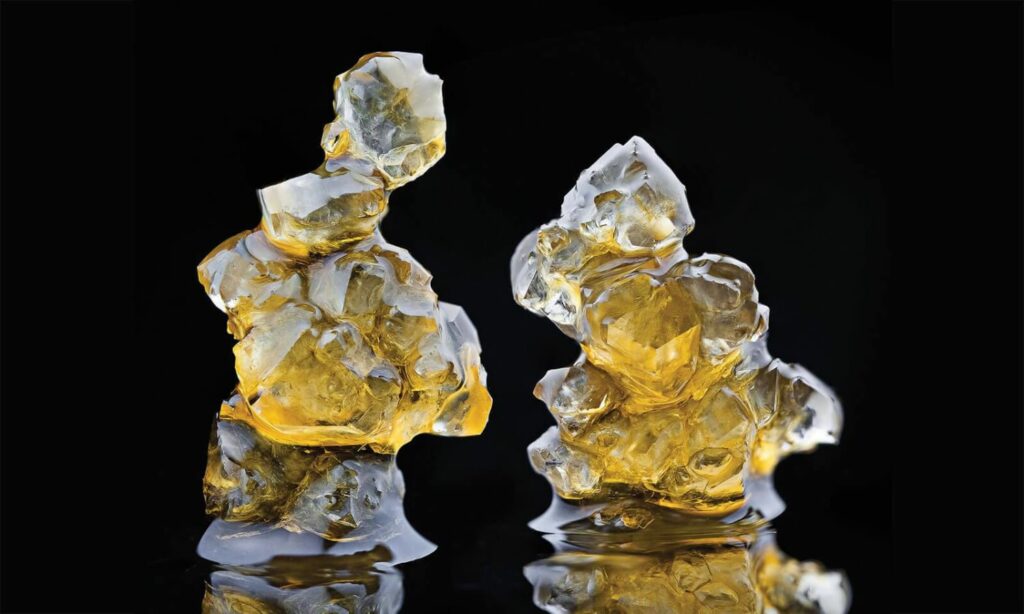Are “Hazardous” Solvents used to Extract Botanicals Oils?
Common misconceptions of manufacturing cannabinoid derived value-added concentrates exist. The Extraction of these botanical compounds can be achieved from different methods. Each uses their own type of solvent. Some use CO2 aka Carbon Dioxide, which is common in the brewing industry and is an organic substance. Others can use hydrocarbons, such as n-Butane, and Propane which belong to the class of organic compounds known as alkanes. Ethanol or Alcohol is also widely used. There is also the best solvent of them all, good old fashion H2O, Water!
Which is Best? How can we know what we are consuming is Safe?, and What things should we look for in everyday product selection?

THCA Diamonds, made with hydrocarbon solvents.
Each of these solvents are organic, and each of them have their own use case applications, or purpose relating to cost efficiency, yield, product platform strategy, and more.
Organic solvents are carbon-based substances capable of dissolving or dispersing one or more other substances.

Solventless Bubble Hash Rosin, made using water.
Are there any contaminants in Bubble Hash & Rosin?
Solventless extraction processes use water, which yields an extract with high amounts of plant waxes, fats, and chlorophyll (plant matter). Its good practice to refine the final product by removing them.
Are “Hazardous” Solvents Safe?
It can be easy to dismiss hydrocarbons to be hazardous. That’s because it requires hazardous shipping handling in transport since it is flammable. This provides poor foundation for a widely adopted misconception that they are bad for human consumption.

Distillate Oil can be made with Ethanol and or supercritical CO2.
Removing residual solvents from extraction process
There is more residual part per million of propane gases in a hamburger fresh off the barbeque than there is in extracted botanical oil products. When extracting cannabinoids, this solvent is used at temperatures beyond -40c in liquid phase, but once in final refinement, the extract is gently heated under vacuum. This will change phases of any residual liquid propane gases into gas and is evacuated from the exhaust port. The concentrate comes out of the chamber with part per million residuals less than double, or even triple digit sum amounts. To provide some context, Health Canada mandates below 5000 of part per million in finished products.
Click here to access our research & development summary on residual LPG solvents.
How can I trust the extract I am consuming?
Significant regulation and effort to uphold standards in general good production practices are mandated in uniformity as baseline across the entire industry. All products are analyzed throughout multiple stages of production and refinement to quantify content of constituents.
When consumers purchase from the black or grey market, quality assurance is overlooked and there are no protection mechanisms in place for the public when using these products.
A growing concern remains to be; Terpene Content, and how it affects the human body!

THCA Diamonds and Sauce made with hydrocarbon solvents.
Terpenes, make the product taste better?
Terpenes are naturally occurring compounds found in cannabis and other useful plants all over the world.
You’ll almost always hear about terpenes when buying cannabis-based products, such as how terpenes make the product “better, more flavorful, and more aromatic.”
What many people don’t know is that terpenes can be dangerous if they aren’t used correctly. Sometimes you can tell if the terpene ratio is too high, for example in a vape, if it causes irritation of nasal passages.